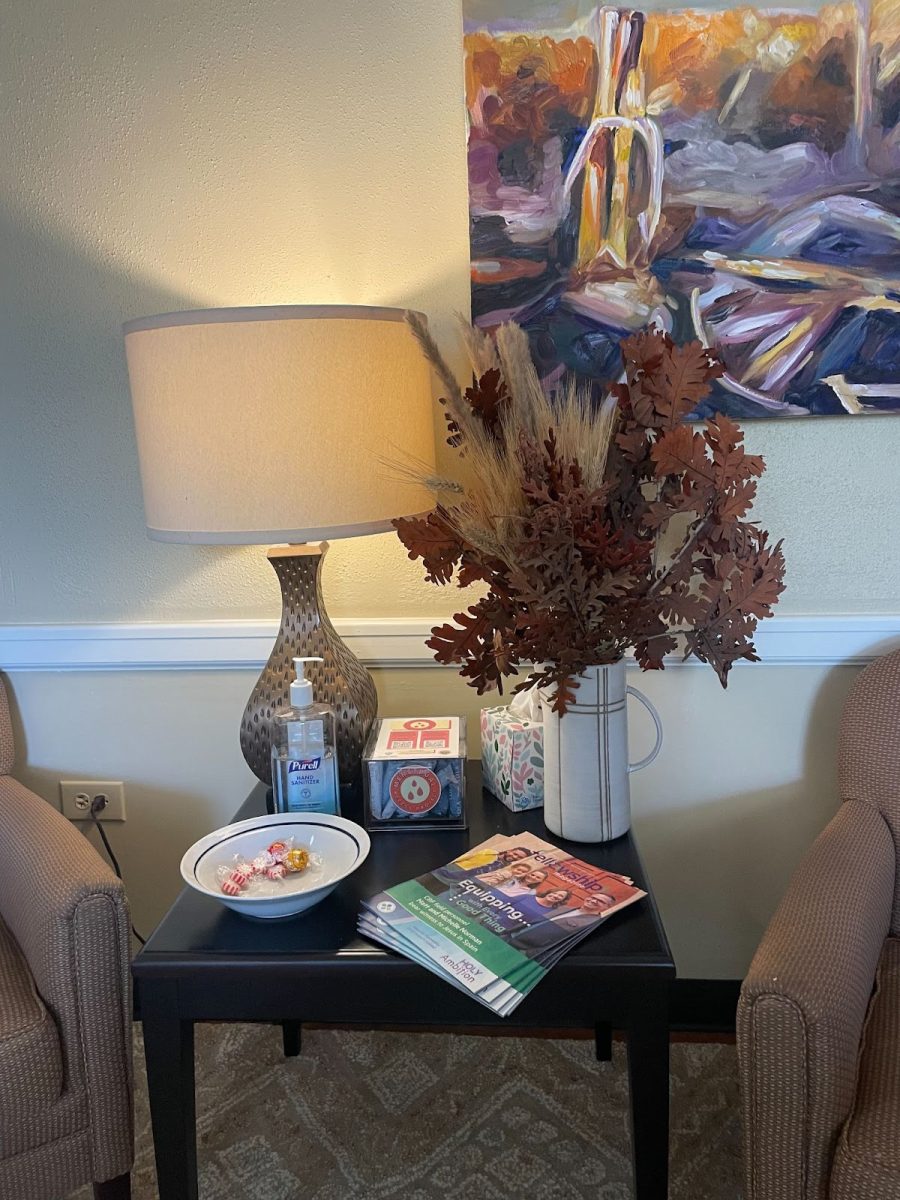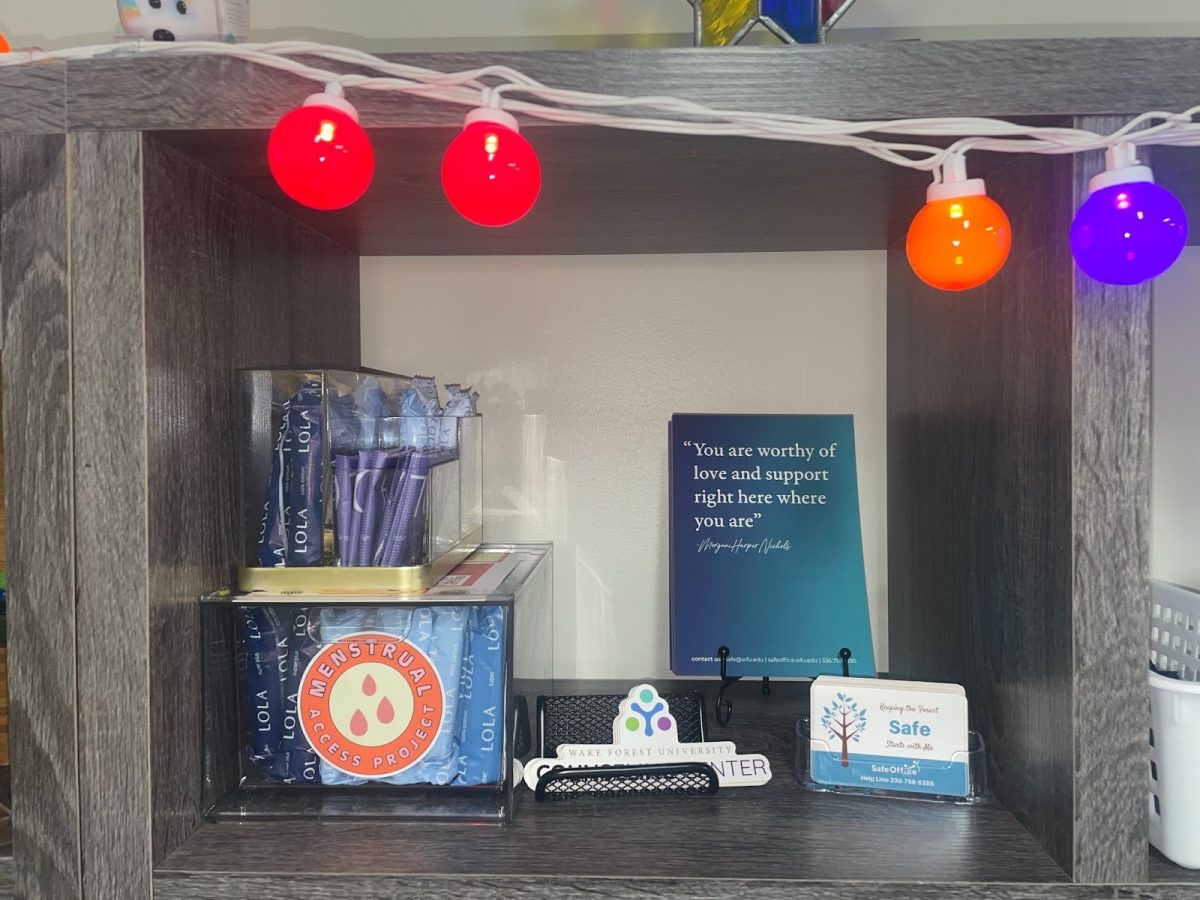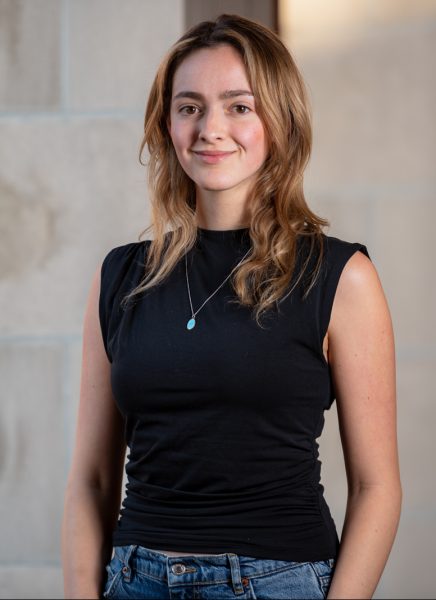It can happen anywhere. It can happen at any time. You’re sitting in class and suddenly, you just know. Discreetly, you rise out of your seat and make your way to the door while strategically trying to keep your back to the wall. Then, it’s a game of luck.
You scan the building for a friendly, female face. If you’re fortunate, you can find someone to hand off the necessary item out of the public eye as if it’s a drug deal. If you’re less fortunate or can’t afford it, you’ll find yourself in a cramped bathroom stall shoving layers of thin, itchy toilet paper into your pants and praying it goes unnoticed.
Oh, the thrill of being a person with a period in a world in which women’s menstrual needs often go unmet and unspoken. On top of that, high prices and lack of resources create menstrual inequity and stigmatize having periods.
To combat some of this stigma and inequity, Student Government and the Women’s Center have collaborated to start the Menstrual Access Project. Since August, the program has placed 31 free menstrual product kiosks in 16 buildings around campus to help remove the economic pressures and stigma surrounding periods.
These dispensaries can be found by scanning a QR code to view kiosk locations across Wake Forest’s campus, including the ZSR Library, the English Department, the Art Department and the SAFE Office, among 27 other departments.
“It’s just absurd that individuals cannot just have easy access, and it pissed us off,” Student Government Speaker of the House Michael Walsh said. “We’re glad the project is providing both that equity for disadvantaged students and also providing easy access for everyone.”
High prices at Wake Forest and beyond
In North Carolina, menstrual products are taxed at 4.75% with an additional 2-3%, as they are considered luxury goods, not essential. This is part of a phenomenon referred to as the “Pink Tax” or “Tampon Tax” that 30 states enforce. Additionally, the “Pink Tax” refers to most women’s products, such as razors, deodorant, face wash and toddler’s clothing, which are significantly more expensive than similar men’s products.
“The construct of the Pink Tax definitely adversely affects people who menstruate and need these items,” Assistant Director of the Women’s Center Hannah Rehm said.
At Wake Forest’s P.O.D. on Hearn Plaza, the price of menstrual products is even greater than the already lofty Target prices in Winston-Salem, with a pack of 10 “Always: Ultra-Thin” pads costing $4.99 and a pack of eight “Tampax Pearl: Super” tampons costing $6.29. Those identical products are sold at Target in a pack of 44 pads for $6.29 and a pack of 36 tampons for $7.99.
Before the Menstrual Access Project provided free products, many students had to buy pads at Wake Forest prices, which were about 350% more expensive for pads and 360% more expensive for tampons per unit, compared to local Target prices.
The National Organization for Women estimates that the average woman will spend $20 on menstrual products per cycle and will spend an estimated $18,000 on those products by the time they enter menopause. Furthermore, women in 2023 make an average of 82 cents for every dollar a man makes — meaning women must incur these additional expenses with, on average, fewer financial resources.
Dispensaries and Departments
Khelen Kuzmovich is the academic program coordinator of Integrative Student Services at the Wake Forest School of Divinity, where one of the project’s kiosks is located. She says the project has been effective and is a positive addition to the building, as she believes in destigmatizing menstruation.
“At the Divinity School, we’re all about justice, and that includes menstrual equity,” Kuzmovich said. “We wanted to display [the products] right here in our admissions suite — we’re proud of them.”
Divinity School student Nora Crouch agrees with the school’s sentiment and has often used them herself.
“I love not only providing [menstrual products] for anyone that may need them, but also I feel like we’re promoting that it’s not something to be embarrassed about,” Crouch said. “It’s just a natural thing that happens to people.”

In Farrell Hall, kiosks are located in the Student Engagement Suite on the main floor and the Employer Relations section (A05/A54). Service Desk Specialist Chandra Graham remembers the countless times students would come to her desk as a last resort. She said she would discreetly hand those students menstrual products behind the long, glass doors that separate the suite from the busy lobby.
According to Walsh, who began planning this project last year, the dispensaries are not located inside restrooms because they must abide by Wake Forest Facilities’ policy, which, according to Sizemore, places limits on what can be present in bathrooms due to potential accumulation of fecal matter. WFU Facilities did not respond to the Old Gold & Black’s request for an interview about the policy.
Amanda Horton works with Graham as senior associate director for Integrative Student Services at the School of Business. Horton is another advocate of the Menstrual Access Project and says she recognizes the need of students when it comes to menstrual product access.
“[The Business School] had been purchasing menstrual products on our own and keeping them upfront so [they were available to]students, faculty, staff or guests,” Horton said. “Now, we’re part of a larger university project, and it’s very visible…. We’re already part of the campus-wide system, and students are more aware of it, so they can come in and access it at any point on their own.”
Next steps
Organizers in Student Government and the Women’s Center are enthusiastic about the positive feedback regarding the project. They hope to potentially expand the Menstrual Access Project in the coming years.
“Student Government is a great partner of ours, and we will definitely love to see how the project goes because this is our pilot year,” Rehm said.
Part of these expansions include “Women’s Health 101,” a workshop where women can discuss female health questions to local health care providers in an informal setting.
The Menstrual Access Project is also working to address menstrual poverty in Forsyth County. Organizers will be holding “Period Packing Parties” once a month where students can help address menstrual poverty in Forsyth County by putting together packs of products that are delivered to schools and women’s shelters in the area.









